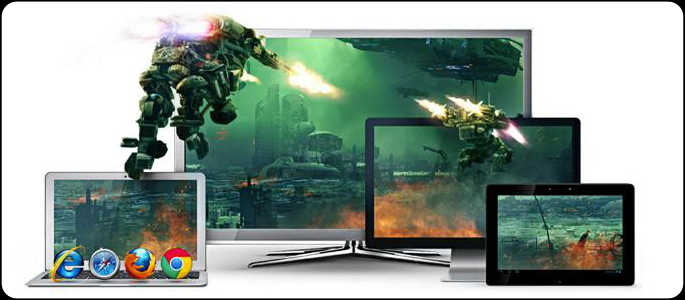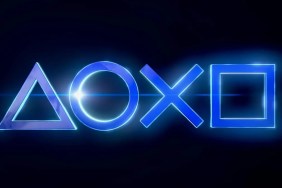With E3 now behind us, it’s time for the glorious return of the cross-site feature Looking For Hits, the weekly discussion between PlayStation LifeStyle’s Managing Editor Sebastian Moss and Game Revolution’s News Editor Daniel Bischoff. Today we talk about the biggest story of the week, perhaps even the year – Sony’s purchase of cloud gaming company Gaikai.
Do you think that Sony’s decision to buy Gaikai this early on in cloud-gaming’s life was a smart move?
 Daniel Bischoff: This was a very smart move on Sony’s part. While I’m sure Gaikai loves the backing and stability of a larger corporation, Sony is really the only entity that stands to reap the benefits from this deal. They’re essentially future-proofing themselves and the PlayStation brand by obtaining the infrastructure, model, and tech to join the cloud gaming world when it inevitably rears its ugly head.
Daniel Bischoff: This was a very smart move on Sony’s part. While I’m sure Gaikai loves the backing and stability of a larger corporation, Sony is really the only entity that stands to reap the benefits from this deal. They’re essentially future-proofing themselves and the PlayStation brand by obtaining the infrastructure, model, and tech to join the cloud gaming world when it inevitably rears its ugly head.
Whether it’s an investment that’ll pay off in the long-term or the short-term, we’ll have to see, but $380M is definitely a smaller figure than if Sony had waited a few years and watched cloud gaming take off without them.
![]() Sebastian Moss: Absolutely. Make no mistake, this was an incredibly risky move, but a smart one. Sony has hardly any money, is desperate to be profitable and just made their biggest purchase in SCE history on a company that probably doesn’t make much money. Then, there’s the fact that Sony is going to have to heavily invest even more as they’ll need to support far more gamers than Gaikai ever has.
Sebastian Moss: Absolutely. Make no mistake, this was an incredibly risky move, but a smart one. Sony has hardly any money, is desperate to be profitable and just made their biggest purchase in SCE history on a company that probably doesn’t make much money. Then, there’s the fact that Sony is going to have to heavily invest even more as they’ll need to support far more gamers than Gaikai ever has.
But the payoff could be far huger. Consoles are expensive machines that become technically outdated the second you purchase them, they only work on the one TV they’re plugged into, unless you move them around carefully. Once internet speeds are far better, it’s likely that a huge number of people will be enticed by the low entry costs, easy set up, and lack of hassle of cloud gaming. Being king of the cloud has far more potential than being king of the console market.
Will Microsoft make a similar move and buy OnLive, or do it by themselves?
![]() SM: Some analysts say that Microsoft will do it on their own because they already have a strong cloud presence in Office and computing, but that’s not entirely sound reasoning – there are huge differences with the architecture of cloud gaming computers and cloud computers for Office. I spoke to OnLive last year, and they were convinced that these differences mean that if Microsoft wanted to get into cloud gaming, it’d be a huge investment.
SM: Some analysts say that Microsoft will do it on their own because they already have a strong cloud presence in Office and computing, but that’s not entirely sound reasoning – there are huge differences with the architecture of cloud gaming computers and cloud computers for Office. I spoke to OnLive last year, and they were convinced that these differences mean that if Microsoft wanted to get into cloud gaming, it’d be a huge investment.
So the question is, is that investment greater than the cost of buying OnLive? With Gaikai bought up now, OnLive’s price will be pretty steep as they’re the only remaining large cloud gaming company.
Another important factor is the patents – just look at what Apple are doing to Android OEMs right now. Patents are hugely important, and could make OnLive’s purchase a necessity for Microsoft.
 DB: Patent Trolling is almost an industry unto itself at this point. If Microsoft doesn’t buy up OnLive, you can bet that OnLive will defend their work and sue to make sure they keep their game plan.
DB: Patent Trolling is almost an industry unto itself at this point. If Microsoft doesn’t buy up OnLive, you can bet that OnLive will defend their work and sue to make sure they keep their game plan.
I almost feel as though OnLive and Gaikai were started as entities waiting to be bought up by larger corporations. If Microsoft doesn’t buy OnLive, I’m sure someone else will. With the cloud becoming such a daily-use technology in music, the previously mentioned office, and computing, it’s only a matter of time before someone creates an all-cloud hardware. Whether it takes the form of a computer or box you put under your TV remains to be seen.
How long before Sony messes it up?
![]() SM: Haha, that’s what everyone in the industry is thinking. Sony can’t get download speeds to match the 360s, they can’t get remote play to work, they’ve been hacked, they constantly have unscheduled downtime – in short, they’re not the best when it comes to digital distribution and networks. Then there’s the question of integration – will Sony use this to sell their TVs, their phones, their laptops etc only? Or will they do what Gaikai originally set out to do and put it on as many platforms as possible? I fear they’ll do the former as they’re still an intensely hardware-focused company, but that could be the service’s undoing. Sony products can be great, yes, but they’re often overpriced, and the company can be slow to react to market trends. PlayStation Cloud won’t be enough to sell the hardware, and it’ll simply greatly limit the distribution of the service, leaving a huge market open for a competitor.
SM: Haha, that’s what everyone in the industry is thinking. Sony can’t get download speeds to match the 360s, they can’t get remote play to work, they’ve been hacked, they constantly have unscheduled downtime – in short, they’re not the best when it comes to digital distribution and networks. Then there’s the question of integration – will Sony use this to sell their TVs, their phones, their laptops etc only? Or will they do what Gaikai originally set out to do and put it on as many platforms as possible? I fear they’ll do the former as they’re still an intensely hardware-focused company, but that could be the service’s undoing. Sony products can be great, yes, but they’re often overpriced, and the company can be slow to react to market trends. PlayStation Cloud won’t be enough to sell the hardware, and it’ll simply greatly limit the distribution of the service, leaving a huge market open for a competitor.
 DB: It’ll be a while before they screw it up. I’m mostly basing this off of my assumption that Gaikai will continue to run on its own before it gets integrated with the PlayStation brand. That said, there’s every opportunity for these huge corporations to screw stuff up. The cloud is just another target for malicious attacks.
DB: It’ll be a while before they screw it up. I’m mostly basing this off of my assumption that Gaikai will continue to run on its own before it gets integrated with the PlayStation brand. That said, there’s every opportunity for these huge corporations to screw stuff up. The cloud is just another target for malicious attacks.
If cloud gaming becomes more prevalent, how will retailers respond?
 DB: I think that cloud gaming won’t replace the physical retail model, at least not right away. If you walk into a GameStop today they’ll offer to sell you codes to download anything you want on PSN or XBLA. They’ll offer you codes for Xbox Live and PlayStation Plus. They’ve got a huge rack of cards for all the digital services, including Steam at this point.
DB: I think that cloud gaming won’t replace the physical retail model, at least not right away. If you walk into a GameStop today they’ll offer to sell you codes to download anything you want on PSN or XBLA. They’ll offer you codes for Xbox Live and PlayStation Plus. They’ve got a huge rack of cards for all the digital services, including Steam at this point.
The one thing retail will do is adapt as best it can. And if the recent ruling in EU courts has any weight, GameStop and other retail stores will push to start accept digital-game trade-ins.
![]() SM: It’s funny that you mention GameStop – they bought a cloud gaming company of their own. Every other form of entertainment has gone digital, and the retailers in those sectors are either dead or dying. GAME had a lot of trouble finding a buyer after fears that they’d be replaced by cloud and digital distribution, and they likely will. Selling codes is a desperate move, they want to make money off of DD, but they’re signing their own death warrant, letting people know about the PSN and XBL’s online stores.
SM: It’s funny that you mention GameStop – they bought a cloud gaming company of their own. Every other form of entertainment has gone digital, and the retailers in those sectors are either dead or dying. GAME had a lot of trouble finding a buyer after fears that they’d be replaced by cloud and digital distribution, and they likely will. Selling codes is a desperate move, they want to make money off of DD, but they’re signing their own death warrant, letting people know about the PSN and XBL’s online stores.
At the moment, Sony and Microsoft are scared of retailers, they can’t afford for the GameStops and Wal-Marts of the world not to stock their consoles. Once cloud becomes a large-scale, viable option, that balance will be shifted, and we’ll finally start seeing digital distribution become cheaper and more competitive with retail.
Why are other TV manufacturers still including Gaikai functionality in their TVs after this purchase?
![]() SM: It really depends on the terms of the contract. It’s likely LG and Samsung signed up with Gaikai before any party knew that Sony was going to buy them. That contract might be difficult to get out of, and the TV makers can still make some money off of the integration (they get a cut). Samsung probably also doesn’t want to show that they’ve made a mistake partnering with Gaikai.
SM: It really depends on the terms of the contract. It’s likely LG and Samsung signed up with Gaikai before any party knew that Sony was going to buy them. That contract might be difficult to get out of, and the TV makers can still make some money off of the integration (they get a cut). Samsung probably also doesn’t want to show that they’ve made a mistake partnering with Gaikai.
Prior to the buyout, Samsung made a big deal of the fact that they’ll be at gamescom, so it’ll be interesting to see what they do now.
 DB: I think this is just further support for the assumption that Gaikai will continue to operate on its own until Sony is ready to roll it into the PlayStation brand. We won’t see the support fade away until new TV models from Samsung and the other manufacturers land.
DB: I think this is just further support for the assumption that Gaikai will continue to operate on its own until Sony is ready to roll it into the PlayStation brand. We won’t see the support fade away until new TV models from Samsung and the other manufacturers land.
And honestly I think this is a good decision. Sony will only make enemies if they pull the rug out from the other Gaikai partners.
Will we see a marriage of Gaikai and PlayStation functionality on the PS3 or is this a next-gen deal?
 DB: This is strictly a next-generation deal. I think adding the cloud-gaming functionality to the PS3 would be a big mistake because it would disrupt the supply channels they have going on with partners and third-party publishers. Having some games in the cloud and not others would also create a weird dichotomy that consumers wouldn’t really understand.
DB: This is strictly a next-generation deal. I think adding the cloud-gaming functionality to the PS3 would be a big mistake because it would disrupt the supply channels they have going on with partners and third-party publishers. Having some games in the cloud and not others would also create a weird dichotomy that consumers wouldn’t really understand.
We might be well versed in cloud gaming and what it means and how it works, but the consumers who only buy Call of Duty or Madden every year need a little education before they have the future sprung on them.
![]() SM: It’d be interesting to know how far back Sony’s conversations with Gaikai stretch. The further, the better chance of it appearing on this generation. One of the pre-E3 rumors was that Gaikai would enable backwards compatibility on the PS3, so that’s definitely a possibility.
SM: It’d be interesting to know how far back Sony’s conversations with Gaikai stretch. The further, the better chance of it appearing on this generation. One of the pre-E3 rumors was that Gaikai would enable backwards compatibility on the PS3, so that’s definitely a possibility.
There’s one thing that makes me hesitant to proclaim that we’ll see full on cloud on PS3, and that’s a very simple one – the DualShock 3. A lot of people complain about lag on the cloud, but that’s not entirely down to it being streamed. TVs, the game itself and the controller all add to the lag, each little millisecond of delay coming together to ruin the experience. OnLive spent a huge amount of time in creating a controller with a fraction of the lag of the DualShock 3 – which was designed without cloud in mind. A typical wireless controller gives 20 to 30 milliseconds lag, OnLive gives around 2 to 3 milliseconds.
PS1 and PS2 games could probably survive with that added delay, but I’m not so sure about PS3 games.
Next week, we’ll be on Game Revolution to discuss the biggest multiplatform news, and back here the week after.








